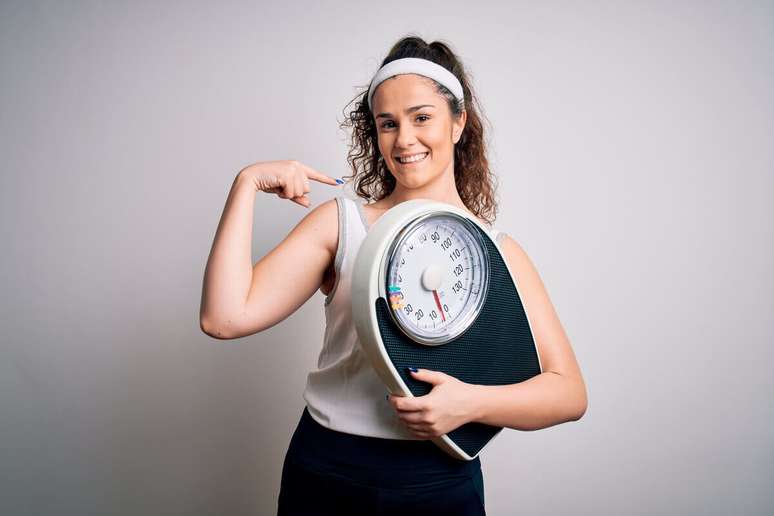The idea of total weight misleads people and makes healthy weight loss difficult
Having the habit of weighing yourself on the “bathroom” scale is very common for many. Even today, people have the idea that total weight is a good parameter for assessing our body composition, however it is far from being a reliable method in isolation.

Composition of the human body
Our body weight is basically made up of our own muscles, bones, viscera and fats, as well as water. When we want to increase or decrease weight, we must keep in mind that basically what will change is our lean (muscle) or fat (fat) weight, since our organs and bones have little variation in this process.
Body assessment methods
Having said that, the first process to get the real situation of our body composition is to do a physical assessment. The most common and accessible assessment methods are skin folds and bioimpedance. These evaluations are extremely important for your nutritionist and physical trainer, because based on these lean mass and fat percentage values, the diet can be calculated with greater precision and will serve as a parameter to measure the evolution of the athlete.

Importance of body assessment
Now let’s exemplify why not rely on body weight alone. Let’s create a hypothetical scenario of an individual weighing 80 kg, with 15% body fat. After 2 months of dietary adjustment e cycling workouts and bodybuilding, this individual noted that he only lost 1 kg. Is this a sign of wasting time? Not necessarily.
Redoing the physical evaluation we can see that he lost 3 kg of fat and gained 2 kg of lean body mass, reducing his fat percentage to 11.5%. This difference will add up to only 1kg of total weight loss, but your body composition has totally changed.
In addition, factors such as: level of hydration, menstrual period (in the case of women), characteristics of diet, the use of drugs, metabolic disorders, among others, can increase or decrease the total weight due to the accumulation of fluids in the body. So, don’t just rely on your total weight, it can mask a good evolution for people who train.
Stay tuned:
Normally, when a large change in total weight is noticed in a short period of time, especially in sedentary individualsmuch of this loss is due to a decrease in water retention, i.e. the person becomes less bloated, as well as a large loss of lean body mass, which is crucial to avoid.
Published by Bicycle Magazine
By Raphael Lombardi
Sports nutritionist, specialist in exercise physiology (UFRJ). CRN 17100663.
Source: Terra
Ben Stock is a lifestyle journalist and author at Gossipify. He writes about topics such as health, wellness, travel, food and home decor. He provides practical advice and inspiration to improve well-being, keeps readers up to date with latest lifestyle news and trends, known for his engaging writing style, in-depth analysis and unique perspectives.







